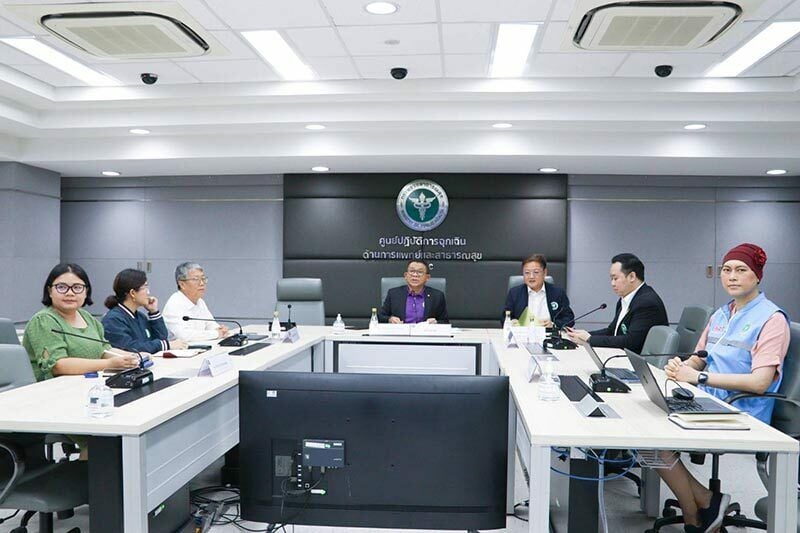Landslides and floods in Thailand claim 19 lives

A severe landslide and flood disaster has affected nine provinces in Thailand, resulting in 19 fatalities and numerous injuries. The Ministry of Public Health is mobilising medical supplies and healthcare personnel to assist the affected populations.
The disaster, which occurred between September 8 and yesterday, September 18, has created a critical situation requiring a coordinated response from multiple government agencies. A teleconference was held yesterday, chaired by Veerawut Imsamran, Inspector General of the Ministry of Public Health, in conjunction with the Emergency Public Health Division, provincial health offices, and other relevant agencies. The aim was to prepare for and manage the medical and health aspects of the ongoing crisis.
Veerawut emphasised that the current flood and landslide situation is a priority, necessitating integrated efforts from all state agencies to support and assist the public.
The Disaster Relief Operations Centre, overseen by Deputy Prime Minister and Minister of Defence Phumtham Wechayachai, approved the establishment of a working group led by the permanent secretary of the prime minister’s office. This group includes representatives from various ministries, including the Ministry of Public Health, to consolidate data, integrate solutions for flash floods, stagnant water, overflowing rivers, and landslides, and restore normalcy.
The group will also coordinate information and resources, predict future situations, assist affected individuals, plan public warnings, and report outcomes to the centre. All agencies are to act swiftly within their respective roles.
Veerawut noted that the Ministry of Public Health, the main agency responsible for public health, is closely monitoring the situation. Opart Karnkawinpong, the Permanent Secretary of the Ministry, instructed that the Public Health Emergency Operations Centre (PHEOC) convene daily meetings to address the crisis.
Thailand flood
Since September 8, nine provinces have been affected: Chiang Rai, Nong Khai, Loei, Bueng Kan, Nakhon Phanom, Udon Thani, Phuket, Satun, and Trang, with a total of 462 injuries and 19 deaths. Causes of death include landslides, drowning, and being swept away by floodwaters.
Sixty shelters have been established, 57 of which are operational, while three have been closed. Twenty-five healthcare facilities have been impacted, including three district health offices, three hospitals, and 19 sub-district health promotion hospitals, all of which remain operational.
Veerawut highlighted that medical and public health services are being provided to the public, including home visits, health education, treatment, referrals, and environmental care kits to 18,080 people. Mental health services have been offered to 24,285 individuals, with 642 experiencing stress and 133 referred for further care. The most common health issues reported are foot infections, headaches, respiratory problems, skin conditions like allergies and rashes, and gastrointestinal issues.
A total of 941 medical and public health teams have been deployed to assist vulnerable groups, including 46,420 individuals such as homebound patients, people with disabilities, pregnant women, the elderly, and others requiring special care like dialysis and psychiatric patients. The ministry has supplied 55,502 sets of medical supplies, including disaster relief kits, foot infection treatments, household medicines, mosquito repellents, and flu vaccines.
Veerawut also mentioned that measures have been set up to address the evolving situation in three parts:
1. Provinces where the situation is easing, like Chiang Rai, should monitor for waterborne diseases and guide the public and emergency workers about safe water consumption.
2. Provinces still experiencing the disaster should ensure the well-being of residents and shelter occupants, establish epidemic prevention systems in shelters, protect healthcare facilities from disruptions, and assess support needs.
3. Provinces at risk of future flooding, such as those in the Mekong River basin (Mukdahan, Nakhon Phanom, Amnat Charoen, and Ubon Ratchathani) and areas affected by tropical depressions, should closely monitor the situation, evaluate the risk to health services, identify vulnerable groups, prepare evacuation plans, and ensure sufficient medical supplies, reported KhaoSod.
Latest Thailand News
Follow The Thaiger on Google News:


























